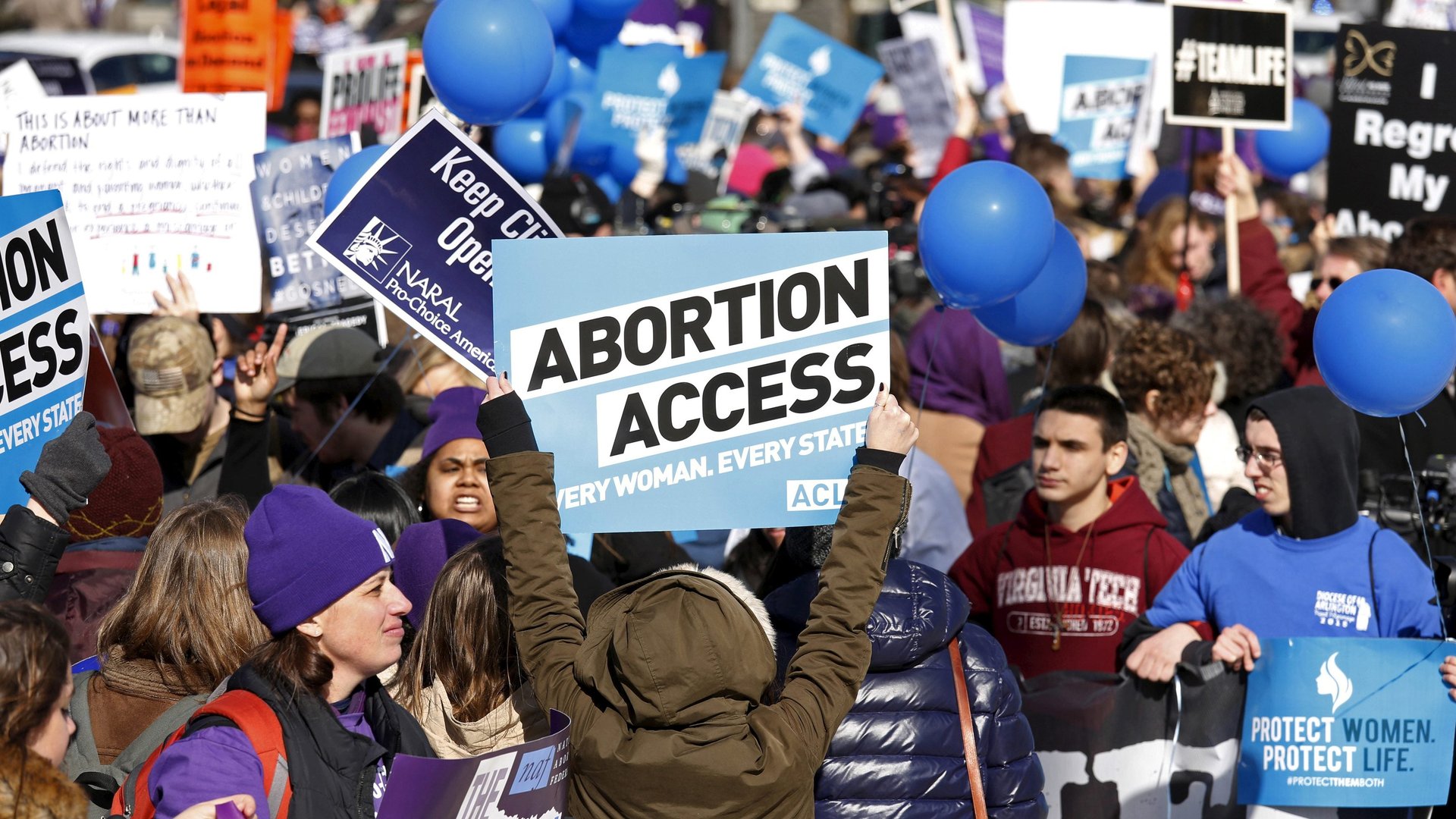Being denied an abortion may push more people into poverty
Almost exactly 45 years ago, the US supreme court recognized the right to abortion as law of the land. But abortion rights never really stopped being under threat.


Almost exactly 45 years ago, the US supreme court recognized the right to abortion as law of the land. But abortion rights never really stopped being under threat.
The latest move against them comes from the government’s tax bill of 2017, which uses the label “unborn child” for fetuses, a terminology coming straight from anti-abortion advocacy that recognizes personhood before birth, opening the way to criminalizing abortion.
This is something that especially penalizes lower-income women. In 2013, an important study of nearly 1,000 women surveyed the most common reasons to lead to an abortion. Be it a single mother who “didn’t have money to buy a baby spoon,” or the unemployed wife of an unemployed man who didn’t “want to go back to living with other people,” financial reasons were the most commonly cited by women who sought abortions, followed by it not being the right time to have a baby, and reasons related to the partner (who might be absent, unsupportive, or abusive).
A new study published today in the American Journal of Public Health provides important evidence to expand this claim, showing opposing abortion harms the poor, not just because it’s often lower-income women who decide to get abortions, but because being denied an abortion is linked to long-term financial consequences.
The research, led by Diana Greene Foster, the director of research in gynaecology at the Brixby Center for Global Reproductive Health, at the University of California in San Francisco was conducted on 813 women who requested an abortion in 30 clinics across the US between 2008 and 2010. The researchers recorded these women’s socioeconomic situation for five years after being offered or denied the procedure—for the first time in the US, Foster explained to Quartz, the study looked at the links between abortion and economic outcomes, not preconditions.
The participants—over half of the whom already lived below the poverty line—were divided in four groups: Those who received an abortion at the first trimester; those who did around limit gestational age; those who were turned away from the facilities but did not end up giving birth, having found access to abortion elsewhere or suffered miscarriages; and those who ended up having a child.
The findings painting a very different picture of the lives of women who were denied the abortion and ended up giving birth compared to the others. Even accounting for baseline differences, the authors of the study write, they “found large and statistically significant differences in the socioeconomic trajectories of women who were denied wanted abortions compared with women who received abortions,” in that those who gave birth against their will suffered more economical hardship than the other groups.
Although the majority of women were already living in poverty when entering the study, carrying an unwanted pregnancy to term was associated with a fourfold increase of the likelihood to be living below the federal poverty life.
Women who didn’t manage to have an abortion and gave birth were also less likely to have full-time employment, and more likely to be completely out of a job.
Another valid way to track financial progress is receiving food stamps—as they are given independently of conditions such as the child’s age (which might affect health care coverage). The findings in this are in line with what emerged from the other data: Through the five years of the study, nearly half (43%) of the women who ended up giving birth despite wanting an abortion were receiving food subsidies—while in all other groups the percentage was at least 11% lower.
Other markers of social well-being suffer, too. A much higher proportion of women who were denied abortions and ended up not having children were, in the following months and years, living without an adult partner at home.